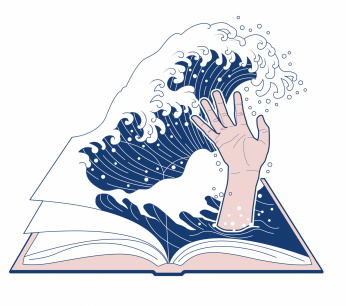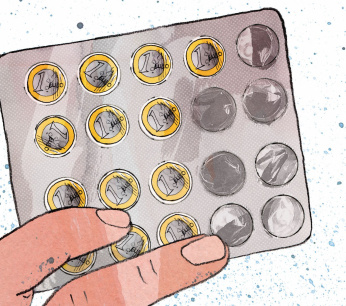Financial reserves are a cause for concern for education ministers
The Ministry of Education is in its stomach with the increasing financial reserves at school boards and partnerships. Minister Arie Slob is considering giving the Education Inspectorate more options to address notorious potters.

Image: Pixabay
This is evident from one policy response on the annual analysis presented today Financial State of Education 2017. In it, the Inspectorate is critical of the tendency for more and more education money to remain on the shelf. The Education Magazine has also recently reported on expanding buffers in partnerships en school boards.
'We are concerned about the increasing reserves, after all it is about money that is intended for education. We wonder whether the reserves are still in proportion to the real risks that schools run,' write education ministers Arie Slob and Ingrid van Engelshoven.
Conservative
The Education Inspectorate has observed a tendency at educational institutions to budget too conservatively, as a result of which more money is ultimately left over. In this way, buffers grow year after year without always being based on a plan. The ministry will investigate the financial planning and buffers at educational institutions in all sectors. The results are included in everything previously announced research into the size and use of the lump sum.
In addition, the education ministers want to see next year whether the inspectorate can be given more opportunities to denounce hoarding. The Inspectorate does apply a financial lower limit for distressed institutions, but no upper limit for excessive savings behaviour. 'It is therefore desirable to investigate whether a signaling value for very wealthy boards can be developed,' according to the ministers. In addition, the Inspectorate will pay extra attention to wealthy boards in its regular supervision of boards.
Astonishing
The regional partnerships for appropriate education generally have more fat on their bones than school boards. 'Amazing', says Slob, because they run few risks because the affiliated school boards stand as guarantors. An additional investigation by the Inspectorate concludes that in many cases partnerships have built up more reserves than they themselves consider necessary to absorb setbacks, something that the Education magazine last year also illuminated.
Since the start of appropriate education in 2014, the buffers of partnerships have increased considerably. The joint equity grew from 157 million euros at the end of 2015 to 238 million euros at the end of last year.
It raises questions about the extent to which the partnerships manage to control their financial processes
Last year almost 32 million euros remained on the shelf, much more than the pre-estimated surplus of 4 million. 'It raises questions about the extent to which the partnerships manage to control their financial processes,' says the inspectorate.
'Given the most important task of the partnerships, which is to provide support to vulnerable pupils, it is worrying and undesirable that so much money is not being spent. It is also in stark contrast to the complaints from schools about too little support in the classroom,' said responsible minister Slob. He adds that he wants to start a discussion about it in the regions.
Recent reporting by the Education Magazine:
->How rich is my partnership?
->Partnerships are left with 32 million
->School boards park millions on the bank


